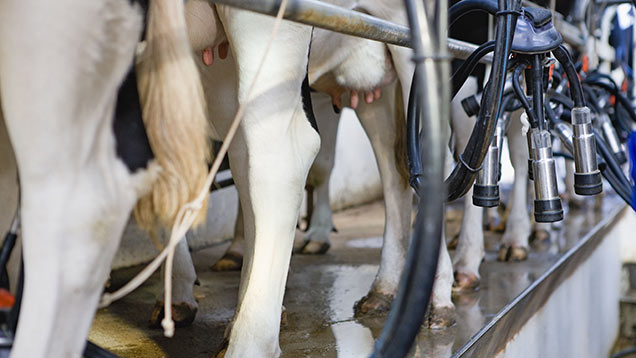Dairy producer numbers could halve in 10 years
 ©Juice/Rex
©Juice/Rex Half of dairy farmers in England and Wales could give up milking in the next ten years, the NFU has warned.
Ahead of the Semex dairy conference in Glasgow today, the union warned that at the current rate of decline the number of dairy farmers could fall from 9,960 today to 5,000 in 2025.
See also: First Milk delays milk payments by two weeks
In December, 60 dairy farmers left the industry after milk prices plunged since last spring.
At Semex, NFU president Meurig Raymond will say that, with milk prices at the lowest level since 2007 and feed costs 50% higher, farmers fear for the future of their businesses.
“We cannot reverse world market trends. But I think there are definite areas where we can work to improve the situation for dairy farmers,” Mr Raymond will say.
“We will continue our difficult but necessary discussions with all the retailers.
“As farmers face volatile markets, I’m also convinced that the government can do more to help by ensuring its policies are sympathetic to the current situation and will help farmers and farming business continue forwards.”
Mr Raymond is speaking in Monday’s (12 January) opening session, along with Farmers For Action chairman David Handley.
First Milk’s decision last week to delay payments to farmers by two weeks and up the capital contributions co-op members make is expected to be the hot topic.
The NFU dairy team met First Milk directors after the announcement, urging them to better explain the co-op’s cashflow problems to the farmers.
NFU dairy board chairman Rob Harrison said he and his board members were appalled by the price cuts crippling the industry.
“Being a dairy farmer at the moment is like being a towel – on the ropes and taking body blow after body blow – there’s only so much you can take before throwing in the towel,” he said.
Mr Harrison said the support from the British public was heartening, with 86% saying they want to buy more British products.
He said they could help dairy farmers by buying more British milk, cheese, yoghurt and butter and asking supermarkets if they could not find the products on the shelves.
